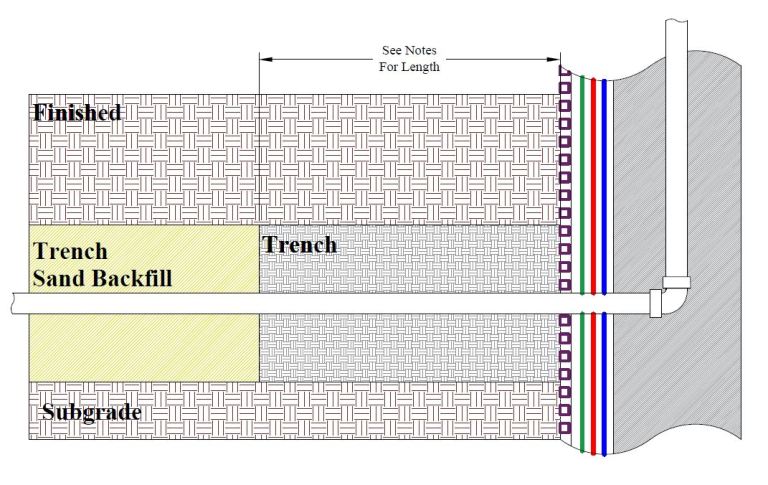Anion
Anion: In the fields of chemistry and geochemistry, an anion is a negatively charged ion. The oppositely charged ion is a cation.
Anion: In the fields of chemistry and geochemistry, an anion is a negatively charged ion. The oppositely charged ion is a cation.

Connate Water Definition Connate Water: In geology, connate water is groundwater that has been trapped within the pore space of a sedimentary rock since its original deposition. Connate water is also referred to as “fossil water” due to a long history of non-exposure.

Trench Dam Trench Dam: Per the Los Angeles Department of Building and Safety (LADBS) Methane Code, Ordinance Number 175790, a trench dam is part of a methane mitigation system. A trench dam is essentially a subsurface barrier that exists within a furrow or ditch, that is adjacent to the foundation of a building in a…

Liquid Limit (LL) “Liquid Limit (LL)” in the field of geological engineering, refers to the upper limit of the “plastic state.” This is a separation of the plastic phase and viscous liquid phase when measuring soil consistency. Mathematically, it is the water content (basing on the percent of dry weight), at which two sections of…

Dilatancy “Dilatancy” is the increase in the bulk volume of a soil substance during deformation. Dilatancy is caused by the change from a close-pack structure to an open-pack structure.

Methane Soil Gas Methane Soil Gas: In geology, methane soil gas refers to the confinement of CH4 within the interstitial pore spaces of subsurface soils. On Earth and potentially on Mars, methane derives from subsurface pockets of biogenic and petrogenic natural gas. To illustrate, accumulations of buried organic matter decay via microbial or thermal degradation….

Body-Wave Magnitude Body-Wave Magnitude: A method for determining earthquake size from the amplitude of body waves. The body-wave magnitude focuses on P-waves and S-waves, which travel faster through the Earth’s crust and mantle.